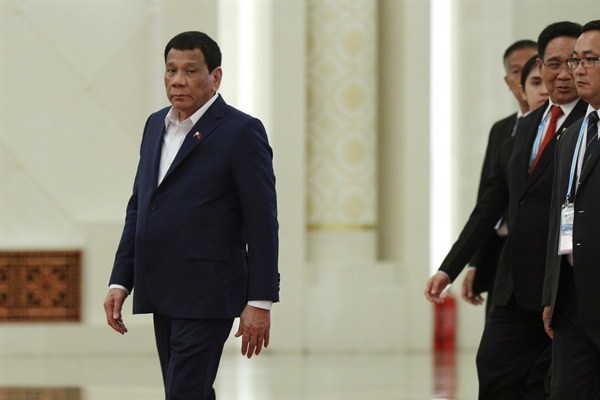Although divisive internationally, President Rodrigo Duterte has remained popular at home in the Philippines despite a deeply illiberal streak. And with this week’s midterm elections, he has amassed even more political power—probably more than any Philippine leader since dictator Ferdinand Marcos.
After pro-Duterte candidates dominated elections for the Senate—the only real remaining source of resistance to Duterte’s agenda—his allies control both chambers of the Philippine Congress. There will now be even fewer constraints on Duterte, who has already been working to weaken the checks on his powers, including by reshaping the Supreme Court. By the end of the year, he will have appointed 12 of the court’s 15 justices.
What will Duterte do with this victory? Given the past three years, it is easy to imagine him using his expanded political powers to move the Philippines further from an illiberal democracy and closer to an outright autocracy, while also taking steps to entrench his influence well beyond the end of his term in 2022. Greater centralization of power not only threatens what is left of Philippine democracy; it could also hurt the economy, unsettling local and foreign investors.

